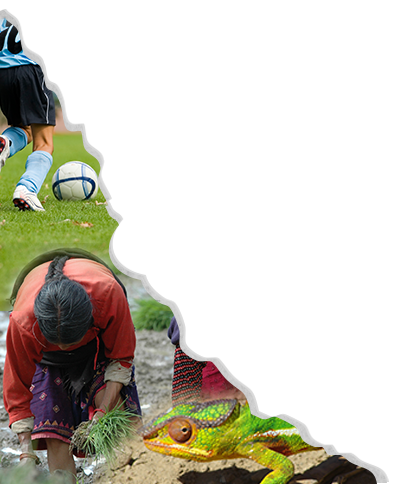-
Share this
Teaching Culture
The purpose of this blog is to build a community of anthropologists interested in pedagogy and to provide them with a reputable source of information and a way to share news on teaching anthropology, publishing in the field, new innovations, and new books.Search
-
Recent Posts
- ESPERANZA SPEAKS: The Power of Ethnographic Storytelling
- Teaching Culture through Tourism: Agency, Authenticity, and Colonialism
- “We are not brains on sticks!” Teaching Anthropology with the Senses
- What online learning taught me about (online) teaching
- Solidarity in Protest: Highlighting Positive Social Change in Urban Costa Rica
Most Viewed
- Five Simple Steps for Helping Students Write Ethnographic Papers
- Eating Culture: Sample Student Assignments for the Anthropology of Food
- Teaching Anthropology of/through Games, Part 1
- Announcing ethnoGRAPHIC: A New Series
- A Teacher’s Review of Ancestral Lines: The Maisin of Papua New Guinea and the Fate of the Rainforest
Categories
Search Results for: graphic anthropology
Happy International Anthropology Day!
We thought that February 19th—National Anthropology Day—should be a day for thinking about not just what anthropology has been but what it might become. And so we invited the Centre for Imaginative Ethnography to talk a little about who they are and what they do in supporting a more creative ethnographic practice. Because we can all stand to be more imaginative about the work we do. read more…
- dateFebruary 19, 2015
- commentsComments Off on Happy International Anthropology Day!
- posted byAnne
- dateFebruary 12, 2015
- commentsComments Off on How I Learned to Love Comics: An Anthropology Editor Sees the Light
- posted byAnne
The Anthropology Teaching Forum (ATF)
This post marks the beginning of a collaboration with the Anthropology Teaching Forum (ATF) at the University of Texas, San Antonio. Here, graduate student Leah McCurdy describes how the ATF was born and outlines its lofty goals. For those of you who aren’t lucky enough to have such an engaged teaching culture in your department, the ATF has been kind enough to share summaries of past talks in this post and future talks in future posts. read more…
- dateOctober 24, 2014
- commentsComments Off on The Anthropology Teaching Forum (ATF)
- posted byLeah McCurdy
Getting Real and Making it Relevant: Teaching Introductory Anthropology
I survey my students on the first day of class to find out why they’ve come and from that data I know to treat their arrival as a gift. I’ve got just one chance to make anthropology relevant to their lives. If I try to treat them as potential colleagues—as anthropologists-in-the-making—I risk alienating them. That risk rises if I require them to read textbooks thick with hundreds of pages of abstract or alien information. Will all that “stuff” survive a few months’ brain storage let alone a lifetime? If not, then it might be better to get something anthropological to stick for their lifetime. In this blog post I provide a few concrete examples of the pedagogical approaches I use. read more…
- dateFebruary 27, 2014
- commentsComments Off on Getting Real and Making it Relevant: Teaching Introductory Anthropology
- posted bySarah Mahler
Announcing a New Anthropology Book Series
Despite a stubborn polar vortex that just doesn’t want to go away, we’re focused on spring and the renewal it promises. So it seems an auspicious time to formally launch our new series designed for undergraduate teaching. Anthropological Insights will feature very brief books (80 to 100 pages or 35,000-50,000 words) that introduce students to contemporary anthropological research. read more…
- dateFebruary 10, 2014
- commentsComments Off on Announcing a New Anthropology Book Series
- posted byAnne



